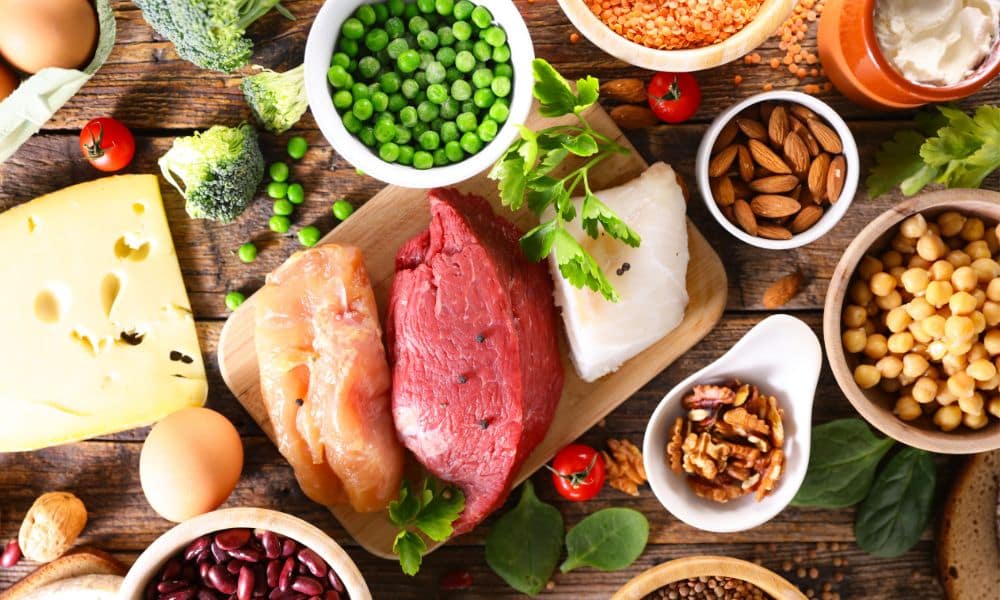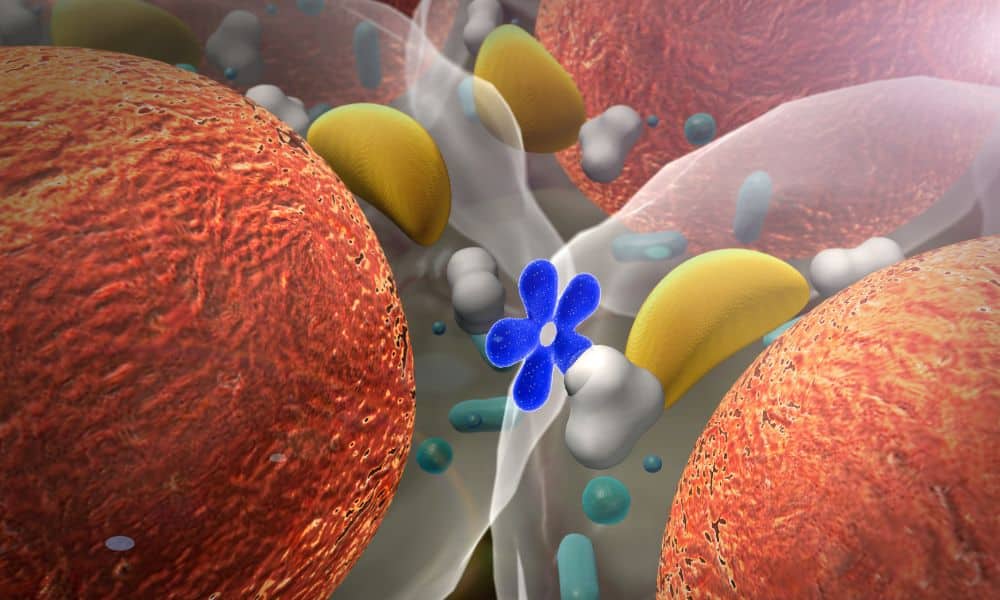Do you want to know how to achieve effective weight loss in 30 days? Losing weight can be challenging, but with the right approach and determination, you can make significant progress in just 30 days.
While it’s important to remember that sustainable weight loss in 30 days requires a long-term commitment to a healthy lifestyle, this article will provide valuable strategies to kick-start your journey and shed those extra pounds within a month.
1. Set Clear Goals:
Before embarking on your weight loss journey, establish realistic and achievable goals. Remember that losing 1-2 pounds (0.5-1 kg) per week is a healthy and sustainable rate. Set specific targets for the 30 days, such as losing 5-8 pounds (2-3.5 kg), which will keep you motivated and focused throughout the process.
Besides your weight loss goals, set goals specific to what action you are taking to achieve weight loss in 30 days. For example, for your diet, create goals to increase fiber, protein, and water intake or eat less processed foods or calories. You can control These goals, which immediately impact your ability to lose weight.
2. Optimize Your Diet:
Nutrition plays a crucial role in weight loss. Focus on consuming whole, nutrient-dense foods while minimizing processed and high-calorie options. Incorporate lean proteins, fruits, vegetables, whole grains, and healthy fats into your meals. Portion control is vital, so track your calorie intake using a food diary or mobile app. Aim for a moderate calorie deficit by reducing your daily intake by 500-750 calories, but avoid extreme or crash diets.
Also, eat with a purpose. Know why you are eating the foods you are eating. You need to know the nutrients and calories from the food you eat regularly. The foods you eat the most will have the greatest impact on your health and fitness. Foods with fiber, protein, and a high nutrient profile will provide the most energy and help you lose weight faster by keeping you full longer.
3. Hydration is Key:
Water not only keeps you hydrated but also aids in weight loss. Drink at least 8-10 glasses of water per day. Water can help suppress appetite, increase metabolism, and enhance digestion. It’s an excellent alternative to sugary beverages that contribute to weight gain.
Water has zero calories. You must create a calorie deficit when achieving weight loss in 30 days. It takes a 3500-calorie deficit to lose one pound of fat. Therefore you must take advantage of as many low-calorie foods as possible. Water surpasses all the others as it doesn’t contribute to your waistline but provides many health benefits that keep you healthy and fit.
4. Engage in Regular Exercise:
Physical activity is crucial for burning calories and increasing overall fitness. Incorporate cardiovascular exercises (such as running, cycling, or swimming) and strength training workouts (using weights or bodyweight exercises) into your routine. Aim for at least 150 minutes of moderate-intensity aerobic exercise or 75 minutes of vigorous activity each week, along with strength training two to three times a week.
The goal of exercise should be to increase your energy during the day, allowing you to increase NEAT activity. Like your diet, because you spend most of your day performing NEAT activities, they have the greatest impact on your goal to achieve weight loss in 30 days.
Therefore workout enough to feel energized without overdoing it. Overworking will leave you tired and depleted of energy throughout the day. This will cause your metabolism to slow down and cancel out the work you perform in the gym. To achieve weight loss in 30 days, you should feel good and energized after leaving the gym.
5. Create a Consistent Workout Schedule:
To ensure consistency, create a realistic workout schedule that suits your lifestyle. Dedicate specific times for exercise, and consider working out in the morning to kickstart your metabolism and boost energy levels throughout the day. Find activities you enjoy to make the process more enjoyable and sustainable.
The key to health and fitness goals is consistency and compliance. Therefore adopt a workout that you look forward to doing and can follow. Remember taking the weight off is just one part of the journey. Once you take it off, you will have to keep it off. You can do this by eating healthy foods and living an active lifestyle.
6. Monitor Your Progress:
Track your weight loss progress regularly to stay motivated and make necessary adjustments. Weigh yourself once a week, preferably under consistent conditions, and record the results. Remember, weight fluctuations are normal, so focus on long-term trends rather than day-to-day changes. Additionally, take measurements of your waist, hips, and other areas to observe changes in body composition.
It has been said only what you measure will grow. By monitoring your progress, you will be informed of how your diet and exercise are helping you to achieve your weight loss goals in 30 days. Don’t be afraid to use progressive overload to decrease your diet calories and increase your exercise and NEAT calories.
7. Prioritize Sleep and Manage Stress:
Adequate sleep and stress management are often overlooked aspects of weight loss. Aim for 7-9 hours of quality sleep each night, as lack of sleep can disrupt hunger-regulating hormones and increase cravings. Practice stress-reducing techniques such as meditation, deep breathing exercises, or engaging in hobbies to prevent emotional eating and promote overall well-being.
One of the most important things about sleep is that it puts you in a fast state. While you sleep, not only are you in a calorie deficit necessary to lose weight, but sleep also allows you to build hormones necessary for fat loss. You should time your diet around sleep and use sleep to repair and replenish your muscles after exercise and other activities.
8. Seek Support and Accountability:
Enlist the support of friends, family, or a weight loss group to stay accountable and motivated. Sharing your goals and progress with others creates a supportive environment and increases your likelihood of success. Consider consulting a healthcare professional or registered dietitian for personalized guidance and expertise.
Conclusion on How to Achieve Weight Loss in 30 Days:
While losing weight in 30 days is an ambitious goal, it is possible with the right strategies and commitment. Focus on adopting a balanced diet, exercising regularly, maintaining hydration, prioritizing sleep, and managing stress. Remember that sustainable weight loss is gradual, so be consistent and compliant.
Finally, however you choose to lose weight, remember, at its core, weight loss comes down to eating less and moving more. If you are on a weight loss journey, share this article on Facebook or Twitter to help others learn more about losing weight.




